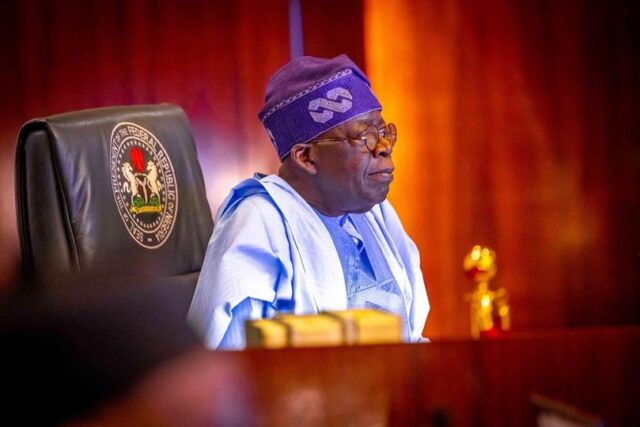The Chairman of the National Sports Commission (NSC), Mallam Shehu Dikko, has, on behalf of the entire sports stakeholders, expressed gratitude to President Bola Ahmed Tinubu, GCFR, for signing the Anti-Doping Bill into law.
Read Also: Bukola Olopade Hails Eng. Musa Kida on NNPC Board Chairman Appointment
According to Mallam Dikko, signing the bill, which had been in the works for nearly two decades, underscores President Tinubu’s strong commitment to aligning Nigeria with global anti-doping standards and advancing sports development.
“My sincere appreciation and gratitude to President Bola Ahmed Tinubu, GCFR, for speedily signing this bill into law. From day one, Mr. President has never hidden his desire to get this done and directed all parties involved to expedite actions. After nearly two decades of delays, this milestone has been achieved through his relentless push and commitment.”
Mallam Dikko credited the President’s support for the significant progress made in Nigerian sports and acknowledged the collaborative efforts of various stakeholders in finalizing the bill. He thanked the Attorney-General of the Federation, the Senate and House Committees on Sports, the Clerk of the National Assembly, and WADA Africa for their contributions to ensuring the passage of the bill.
The newly enacted law domesticates the International Convention Against Doping in Sport and establishes an independent body responsible for implementing the World Anti-Doping Code and International Standards in Nigeria.
A major highlight of the Act is the establishment of the Nigeria Anti-Doping Center, a development that excites Mallam Dikko.
“With this Act, Nigeria will become an anti-doping hub for Africa and the world, in line with the RHINSE framework. The President’s approval of funding for a world-class anti-doping laboratory in the 2025 Appropriations Act is a game-changer.”
Currently, there is only one such laboratory in Africa, and all countries are required to conduct at least 1,500 tests annually. Nigerian samples, like those of other African nations, are currently sent abroad for testing. However, once the new laboratory is operational, this will change, reducing costs and generating revenue for the country.
Mallam Dikko emphasized that the Act reflects Nigeria’s commitment to fairness and integrity in sports, reinforcing the country’s adherence to international anti-doping regulations.
“Mr. President has reaffirmed Nigeria’s dedication to fair play in sporting competitions. Our athletes must remain clean and free from banned substances at all times. By signing this bill into law, Nigeria sends a clear message to the world that we are a nation of integrity, not just in sports but in all aspects of governance.”
The Director-General of the NSC, Hon. Bukola Olopade, assured that with the enactment of the NADO Act, the NSC will work closely with the organization to ensure Nigeria remains fully compliant with global anti-doping standards.
As outlined in the National Sports Commission and the National Sports Industry Policy (2022-2026), the National Anti-Doping Act offers numerous advantages, including:
Reclaiming Nigeria’s position in global sports and addressing lingering doping concerns.
Solidifying Nigeria’s commitment to fairness, excellence, and integrity in international competitions.
Protecting Nigerian athletes from unfair practices while enhancing the country’s global sports reputation.
Ensuring compliance with the International Olympic Committee (IOC), World Anti-Doping Agency (WADA), and the UNESCO Convention Against Doping in Sports, thereby eliminating potential sanctions and fines.
Promoting athlete education and awareness campaigns on doping regulations.
Enhancing drug testing in and out of competitions.
Establishing and funding an accredited anti-doping control laboratory to support Nigeria’s sports economy.
Developing a National Anti-Doping Policy and Guidelines aligned with the WADA Code.
Ultimately, the National Anti-Doping Act 2025 paves the way for a structured and effective anti-doping regime in Nigeria, ensuring the country’s athletes compete on a fair and transparent playing field.









